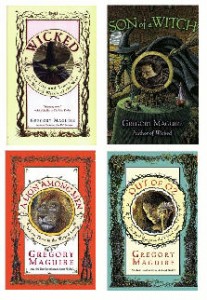 As I work on clearing out the accumulated links in preparation for the Friday News Chum clearing, here are some articles all related to history:
As I work on clearing out the accumulated links in preparation for the Friday News Chum clearing, here are some articles all related to history:
- Miss Subways. If you know me, you know I love musicals. One classic musical is On The Town, which revolves around three soldiers search for that year’s Miss Subways. Well, it turns out that Miss Subways is real. In fact, a New York Transit Museum talked a number of them to returning for a new exhibition on Miss Subways. Interesting to read the article, and find out what happened to these girls (who, by the way, received nothing for the title).
- Historic Theaters. Another interest of mine is history. The LA Times has a nice article on the historic Tower theater downtown that is being remade into a concert venue. The theater has much of its original history still present. The balcony still has seats equipped with wire racks on the bottom for moviegoers to stash their hats. The projection booth has a built-in toilet for the projectionist and steel safety shutters designed to automatically drop down in case the projector’s hot carbon arc light ignited the flammable nitrate film. There are basement tunnels that connect the theater’s boiler room and its huge, built-in Carrier air conditioning machinery to hidden rooms under the front of the auditorium, which included a hydraulic lift to make the 216-style Wurlitzer pipe organ majestically rise so organist Stephen Boisclair could accompany silent movies. Behind where the movie screen once stood is the spot where the pioneering Vitaphone sound system speakers were fitted into the theater wall. Fascinating history.
- Books Coming to Life. When I was young, I remember reading the book The Island of Blue Dolphins. Turns out, the notion for the story was true, and they have recently discovered the cave that may have housed the lone woman of St. Nicolas Island.
- OK Corral. An interesting look at what really happened at the OK Corral in Tombstone, AZ. Hint: They weren’t making pizzas.


 Today’s lunchtime news chum presents three articles about old things:
Today’s lunchtime news chum presents three articles about old things: Harry Harrison has died
Harry Harrison has died
 It’s Friday. Time to clear out the miscellaneous stuff from the links over lunch:
It’s Friday. Time to clear out the miscellaneous stuff from the links over lunch: Today’s lunchtime news chum brings a few articles related to the arts:
Today’s lunchtime news chum brings a few articles related to the arts: